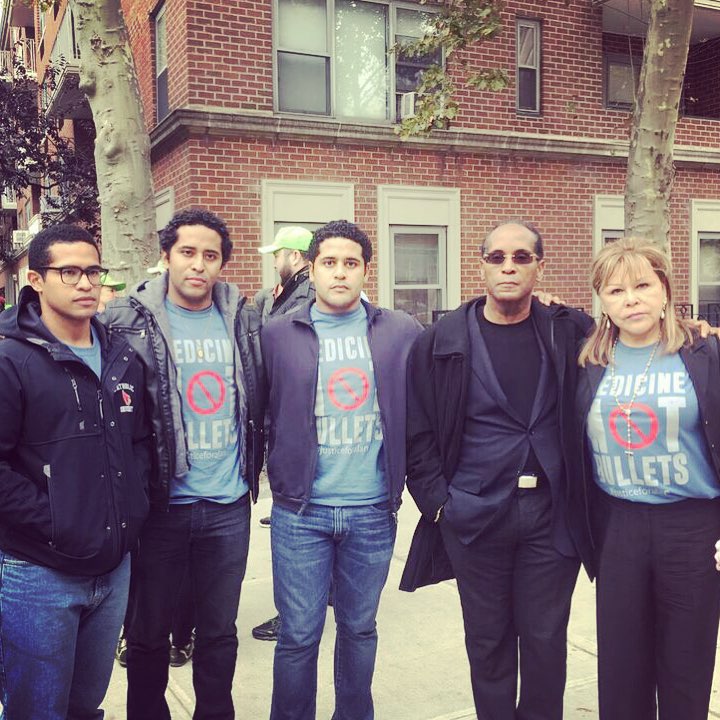Public health student, family call for change in mental health care: ‘Medicine not Bullets’
July 27, 2016 • Uncategorized

Dominique Pean remembers the night his older brother Alan was shot in a hospital emergency room.
With a history of depression, anxiety and bipolar disorder, Alan, a 26-year-old college student, had become increasingly paranoid and delusional leading up to the night he sped to the ER seeking help.
Nearly totaling his car on the hospital parking lot and crashing into other parked vehicles around him, Alan was injured and confused as he screamed out for help from aliens he believed were chasing him.
Sometime between assessment of his injuries and further observation that was expected to lead to a psychiatric evaluation, Alan’s behavior turned even more bizarre and dangerous. Two off-duty police officers moonlighting as hospital security responded, and as they fought to restrain him, he was shocked by a Taser and ultimately, sadly shot in the chest by a bullet.
As Alan’s life hung in the balance, his family struggled to understand the series of events that had led to such trauma, in a place that Alan had run to for safety and help.
Alan is a survivor, having come through the worst and moved his life forward, and today his family is on a mission to help change perceptions of mental illness, especially within health care settings.
Alan’s brother Dominique, a UNTHSC School of Public Health MPH student, recently brought this story to campus as part of an Interprofessional Education (IPE) event, to help students explore misconceptions about mental health and areas where gaps in the health care system may fail patients and their families.
Since the shooting, Dominique and his family (his father is an internal medicine physician, his mother works in health care administration, and his older brother Christian recently completed his medical degree and is pursuing an orthopedic surgery residency at NYU) have been on a mission to share their experience and help champion change, appearing in the New York Times, Huffington Post, This American Life podcasts, and television shows like Dr. Oz (“Why Americans Need to Talk about Mental Health”).
During the campus IPE event, attendees split into groups to play different roles – as hospital CEO, nurse, physician, security, legal counsel and patient advocate staff – to analyze the case and recommend alternate solutions. During a panel discussion, Pean family members took questions and helped students look at some of the far-reaching issues related to mental health, racial inequity, security and protocol, patient safety, communications and administrative/legal response.
“The system broke down for Alan, and my brother’s case isn’t an isolated one,” Dominique said. “We see situations like this occurring in other cities and communities around the country, and it’s our hope that by sharing this personal story, my family can help champion change around improved care, management and policy for mental health patients.”
“Those in health care and public health professions are in a good place to make change,” Dominique said. “We want to help make sure something like this doesn’t happen to anyone ever again.”

Social media